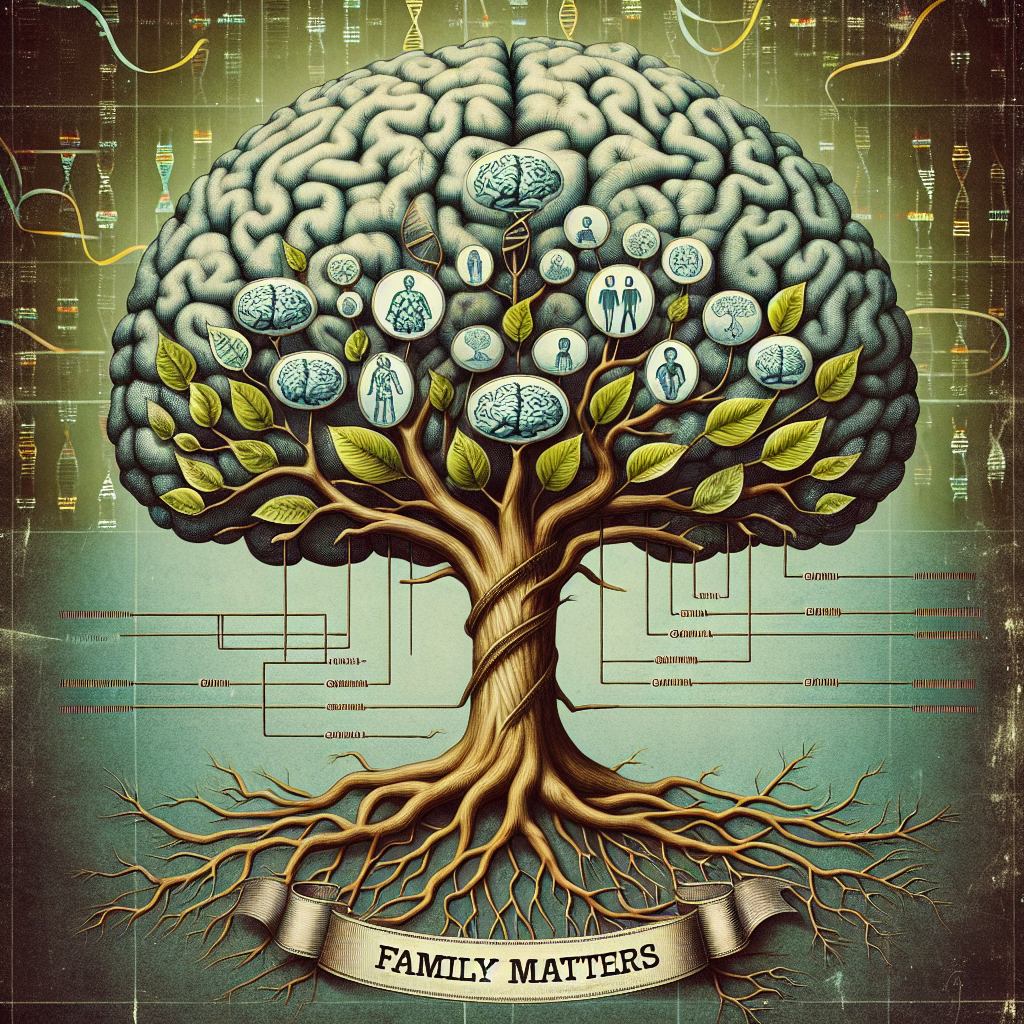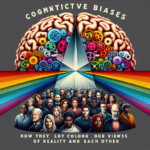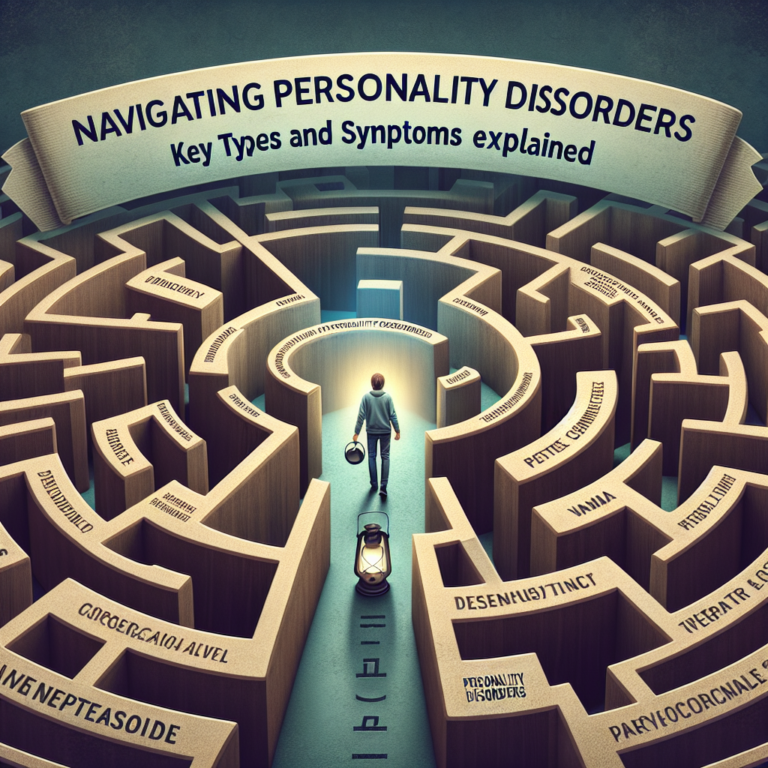
Family Matters: How Genetics Shapes the Landscape of Mental Illness
Introduction
In an era where mental health is gaining the attention it desperately needs, understanding the familial ties to mental health conditions is increasingly critical. The phrase Family Matters: How Genetics Shapes the Landscape of Mental Illness serves as a rallying call to explore the intricate relationships between our DNA and our mental well-being. With statistics indicating that nearly one in five adults experiences mental illness, the role of genetics looms larger than ever. But how do genetic predispositions entwine with environmental factors to shape our mental health? In this article, we will delve deep into these relationships, illuminating the pathways that link genetics to mental illness, supported by real-life case studies, charts, and actionable insights.
The Genetic Foundation of Mental Illness
Understanding Mental Illness
Mental illnesses can be viewed on a continuum ranging from anxiety and depression to severe conditions like schizophrenia or bipolar disorder. Recent research suggests that genetics play a significant role, accounting for nearly 50% of the variance in many mental health disorders. But what does this mean in the context of the broader landscape of mental illness?
The Role of Heritability
Heritability can often be a complex term, but at its core, it describes how much of a trait’s variation in a population can be attributed to genetic factors. For example, studies have shown that the heritability of schizophrenia is around 80%, reinforcing how vital genetics are in this domain.
| Mental Illness | Heritability (%) |
|---|---|
| Schizophrenia | 80 |
| Bipolar Disorder | 60 |
| Major Depressive Disorder | 40-50 |
| Anxiety Disorders | 30-40 |
The Gene-Environment Interaction
While genetics contribute significantly to mental illness, the environment also plays a crucial role. The interaction between genes and environmental factors—such as stress, trauma, and lifestyle choices—forms a complex tapestry affecting mental health.
Case Study: The Role of Adverse Childhood Experiences (ACEs)
One illuminating case is that of Jack, a 35-year-old with a family history of depression. Jack’s mother struggled with severe depressive episodes, leading to his genetic predisposition. However, it was Jack’s experience of multiple ACES during childhood, including parental separation and emotional neglect, that significantly triggered his own depressive episodes. This intricate interplay of genes and adverse experiences illustrates the essential narrative behind Family Matters: How Genetics Shapes the Landscape of Mental Illness.
Understanding Genetic Markers
As we continue our exploration of how genetics shapes the landscape of mental illness, it becomes essential to delve deeper into specific genetic markers that have been implicated in various mental health conditions.
Gene Variants Related to Mental Health
Certain gene variants have been linked to an increased risk of mental health disorders.
- COMT (Catechol-O-methyltransferase): Variants in this gene have been linked to mood disorders and cognitive performance.
- SLC6A4 (Serotonin Transporter Gene): Variants here can influence susceptibility to depression and anxiety disorders.
| Gene | Associated Mental Illness | Function |
|---|---|---|
| COMT | Mood Disorders | Breakdown of dopamine |
| SLC6A4 | Depression, Anxiety | Serotonin transport in the brain |
The Promise of Genetic Testing
The advancement in genetic testing technology holds incredible potential. Companies now offer tests that can assess an individual’s risk for certain mental health conditions based on their genetic makeup. This capability opens a window to proactive interventions and tailored treatments, affirming the message behind Family Matters: How Genetics Shapes the Landscape of Mental Illness.
Case Study: Personalized Treatment Plans
Consider the example of Sarah, who underwent genetic testing revealing a higher risk for bipolar disorder. With this insight, her healthcare provider was able to craft a personalized treatment plan. Knowing her genetic predisposition allowed her to incorporate lifestyle changes, proactive therapy sessions, and a medication regimen designed to mitigate her risk effectively.
The Role of Family Dynamics
Family History: A Double-Edged Sword
When discussing Family Matters: How Genetics Shapes the Landscape of Mental Illness, family history emerges as a potent predictor of mental health conditions. It’s essential to recognize that having a family member with a mental illness does not doom another family member to face the same fate.
The Protective Factors
On the flip side, strong family bonds can act as protective factors. Emotional support, open communication, and a nurturing environment can significantly buffer against the onset of mental health issues among genetically predisposed individuals.
Case Study: The Influence of Family Support
Take the case of Daniel, who grew up with a father who battled substance use and depression. Although Daniel was genetically predisposed due to family genetics, he thrived due to a close-knit family that emphasized mental health discussions and emotional well-being. He became an advocate for mental health awareness, embodying the protective factor that strong familial support can provide.
What Can be Done?
Prevention Strategies
Understanding the links between genetics and mental illness offers actionable insights for prevention. Here are a few strategies that families can adopt:
Open Communication: Encouraging dialogues about mental health can destigmatize conditions and promote understanding.
Education on Genetics: Families can explore their family history to understand potential predispositions, enabling timely interventions.
- Healthy Lifestyle Choices: Being proactive about physical health, managing stress, and fostering resilience can counter genetic risks.
Treatment Innovations
As research progresses, treatment options are continually evolving.
Emerging Therapies
- Genetic Counseling: Families can benefit from genetic counseling to map out risks and understand mental health trajectories.
- Pharmacogenetics: This field involves customizing medication based on individual genetic profiles, significantly increasing treatment efficacy.
Integrating Mental and Physical Health
Treating mental illness effectively requires an integrated approach that considers both mental and physical health. As we explore Family Matters: How Genetics Shapes the Landscape of Mental Illness, physicians are increasingly recognizing the interconnections, leading to more holistic treatment plans.
Conclusion
In summation, the intricate relationships between genetics, family dynamics, and mental illness reveal a landscape rich with complexity. Family Matters: How Genetics Shapes the Landscape of Mental Illness highlights the art of balancing genetic predispositions with the resilience afforded by strong familial ties and proactive interventions. As we continue to unravel these threads, it becomes evident that while genetics may influence mental health, so too do our choices, our environments, and the support systems we cultivate.
Call to Action
We encourage readers to engage in conversations about mental health within their families. Explore family histories, partake in educational resources, and, most importantly, prioritize emotional well-being. In doing so, we can change the narrative surrounding mental illness into one of understanding, support, and empowerment.
FAQs
1. What is the relationship between genetics and mental illness?
Genetics can contribute significantly to the risk of developing mental illness, accounting for a substantial portion of heritability in various conditions. However, environmental factors also play a crucial role.
2. How can I determine if I am at risk for mental illness based on genetics?
Familial history is an essential indicator. Consult with a healthcare professional for genetic testing and a thorough assessment.
3. Can strong family support mitigate mental illness risks?
Absolutely. Strong familial bonds and support systems can act as protective factors against mental health issues.
4. What are some ways to promote mental well-being in families?
Open dialogues about mental health, education on genetic risks, and healthy lifestyle choices are vital for promoting mental well-being.
5. What innovative treatments are available for mental illness?
Emerging treatments include genetic counseling and pharmacogenetics, which tailor medication based on an individual’s genetic makeup, enhancing treatment efficacy.
In the rich tapestry of human experience, it is these narratives—personal and collective—that shape our understanding of mental illness and fortify our resilience against it.











